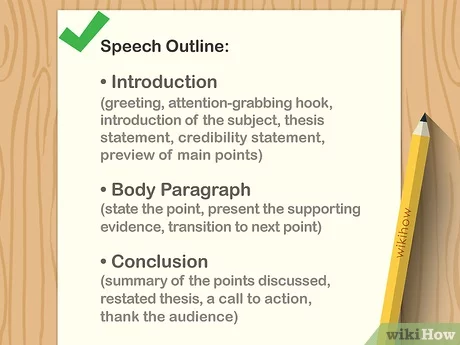How Does Social Anxiety Affect Communication?
Have you ever felt nervous or uncomfortable when talking to new people or in social situations? You’re not alone. Social anxiety is a common experience that many people face. But have you ever wondered how it affects our ability to communicate effectively? In this article, we’ll explore how social anxiety can impact our communication skills and offer some tips on how to overcome it.
Social anxiety can have a significant impact on our ability to communicate with others. When we’re anxious, we may struggle to speak clearly, find it difficult to maintain eye contact, or even avoid social interactions altogether. These challenges can make it hard to express our thoughts and feelings, leading to misunderstandings and missed opportunities for connection.
But don’t worry, there are ways to overcome these obstacles. By understanding the impact of social anxiety on communication and implementing strategies to manage it, we can improve our ability to connect with others and express ourselves confidently. So, let’s dive into the world of social anxiety and discover how it affects our day-to-day interactions.
Social anxiety can significantly impact communication skills. People with social anxiety may experience difficulty initiating conversations, maintaining eye contact, or expressing themselves clearly. Additionally, they may avoid social situations to mitigate their anxiety, leading to isolation and a lack of practice in communication. Over time, this can further exacerbate their communication difficulties. In order to overcome these challenges, individuals with social anxiety can benefit from therapy, support groups, and practicing their communication skills in a safe and supportive environment.
:max_bytes(150000):strip_icc()/talk-people-social-anxiety-disorder-3024390-FINAL-2d01c60be6c94c3e82b7907c4b2fb6a0.png)
How Does Social Anxiety Affect Communication?
Social anxiety is a common mental health condition that affects an individual’s ability to interact and communicate with others in social settings. It goes beyond shyness or nervousness and can significantly impact a person’s daily life. In this article, we will explore the various ways in which social anxiety affects communication, from verbal to non-verbal cues, and discuss strategies to manage and overcome these challenges.
The Fear of Judgment and its Impact on Verbal Communication
Social anxiety often leads to a fear of judgment, causing individuals to worry about saying the wrong thing or being perceived negatively by others. This fear can greatly impact verbal communication. People with social anxiety may find themselves constantly questioning their words, overthinking conversations, and struggling to express themselves effectively.
These communication challenges can manifest in a variety of ways, such as stumbling over words, speaking softly, or avoiding eye contact. Socially anxious individuals may also engage in self-censorship, refraining from expressing their thoughts and opinions out of fear of criticism or rejection. As a result, their communication may come across as hesitant, unassertive, or even disengaged.
It is important to note that social anxiety does not reflect a person’s intelligence or capability to communicate. Rather, it highlights the impact of overwhelming anxiety on their ability to express themselves confidently and authentically in social situations.
Tips for improving verbal communication:
- Practice mindfulness and self-awareness to identify anxious thoughts and challenge negative self-perceptions.
- Engage in public speaking or communication workshops to build confidence and improve speaking skills.
- Seek support from a therapist or counselor who specializes in anxiety disorders.
The Influence of Non-Verbal Cues in Social Anxiety
Non-verbal cues play a crucial role in communication, conveying emotions, intentions, and social signals. However, social anxiety can disrupt an individual’s ability to effectively interpret and display these non-verbal cues, leading to miscommunication and misunderstandings.
Individuals with social anxiety often exhibit physical symptoms such as trembling, sweating, or tense body language. These overt signs of anxiety can be misinterpreted by others, leading to perceptions of discomfort or mistrust. In addition, social anxiety can also hinder one’s ability to accurately read and understand the non-verbal cues emitted by others, making it difficult to gauge social dynamics and respond appropriately in social interactions.
It is important to note that the inability to display or interpret non-verbal cues does not imply a lack of genuine interest or social skills. Rather, it is a manifestation of the anxiety that individuals with social anxiety experience in social situations.
Key Takeaways:
- Social anxiety can make it difficult to speak up or express oneself clearly.
- People with social anxiety may avoid eye contact or struggle with maintaining conversations.
- Social anxiety can lead to a fear of judgment and rejection, inhibiting communication.
- Individuals with social anxiety may experience physical symptoms that impact communication, such as trembling or sweating.
- Effective communication strategies can be learned to help manage social anxiety and improve interactions.
Frequently Asked Questions
1. How does social anxiety affect communication?
Social anxiety can significantly impact communication by causing individuals to feel intense fear or nervousness in social situations. When someone experiences social anxiety, they may have difficulty speaking up, expressing themselves, or maintaining eye contact. This can lead to avoidance of social interactions or difficulties forming relationships. Social anxiety can also result in self-consciousness and excessive worry about being judged or criticized by others, which further hinders effective communication.
In addition, social anxiety can manifest in physical symptoms like sweating, trembling, or a racing heart, which can be distracting and make it challenging to concentrate on the conversation. All of these factors combined can severely limit an individual’s ability to communicate confidently and effectively, affecting their personal and professional relationships.
2. How can social anxiety affect non-verbal communication?
Social anxiety can have a significant impact on non-verbal communication cues. People with social anxiety may struggle with maintaining eye contact, which is an important aspect of non-verbal communication. Avoiding eye contact can make others perceive them as disinterested or untrustworthy, hindering effective communication.
Individuals with social anxiety may also display tense body language, such as crossed arms, fidgeting, or standing/sitting in a closed-off manner. These non-verbal cues convey discomfort and may lead others to perceive the person as unapproachable or unfriendly. Consequently, social anxiety can hinder the ability to establish rapport and build connections through non-verbal communication cues.
Furthermore, social anxiety can impact facial expressions, making it difficult for individuals to convey emotions authentically. They may appear reserved or emotionless, which can create miscommunication or misunderstandings in social interactions.
3. Can social anxiety lead to avoidance of social situations?
Yes, social anxiety often leads to the avoidance of social situations. The fear and anxiety associated with social interactions can be so overwhelming that individuals with social anxiety may go to great lengths to avoid such situations altogether. This avoidance can range from declining social invitations to isolating oneself from social activities and withdrawing from relationships.
Avoidance serves as a coping mechanism to reduce anxiety and the perceived threat that social situations hold for individuals with social anxiety. However, this avoidance reinforces the anxiety in the long run. By avoiding social interactions, individuals miss out on opportunities for personal growth, establishing connections, and practicing effective communication skills. Therefore, it is crucial for individuals with social anxiety to seek support and appropriate treatment to overcome avoidance behaviors and improve their communication abilities.
4. How does social anxiety impact public speaking?
Social anxiety can have a substantial impact on public speaking, often causing individuals to experience heightened fear, self-consciousness, and anxiety in front of an audience. Public speaking is already a common fear for many people, but social anxiety can amplify these feelings, making it a daunting and overwhelming experience.
Individuals with social anxiety may exhibit physical symptoms such as trembling hands, a shaky voice, excessive sweating, or rapid heartbeat during public speaking engagements. These physical manifestations of anxiety can further intensify the fear and negatively impact the individual’s ability to deliver their message effectively.
Moreover, social anxiety can result in a distorted perception of the audience’s judgment, leading to a heightened fear of being negatively evaluated or criticized. This fear can contribute to self-doubt, self-consciousness, and performance anxiety, making it challenging for individuals with social anxiety to present their ideas or communicate effectively in public speaking scenarios.
5. How can social anxiety impact communication in professional settings?
Social anxiety can significantly impact communication in professional settings. Individuals with social anxiety may struggle with contributing to meetings, sharing ideas, or speaking up in group discussions. The fear of being judged or saying something wrong can prevent them from expressing their opinions or fully participating, limiting their professional growth and potential contributions to the team.
In addition, social anxiety can hinder networking and building professional relationships. Initiating conversations, attending networking events, or giving presentations may cause high levels of anxiety. This can prevent individuals from forming connections and advancing their careers due to limited opportunities for collaboration, mentorship, or career development.
Furthermore, social anxiety can affect job interviews, as individuals may struggle with effectively showcasing their skills and qualifications. Nervousness and fear can hinder their ability to articulate their strengths, resulting in missed professional opportunities. Seeking support, practicing assertiveness, and developing coping strategies can help individuals with social anxiety overcome these challenges and enhance their communication skills in professional settings.
How to overcome social anxiety disorder
Summary
Social anxiety can make it difficult to communicate and interact with others. People with social anxiety often worry about being judged or embarrassed in social situations, which can lead to avoidance behaviors. This can result in limited social interactions and feelings of isolation.
Social anxiety can affect communication by causing excessive self-consciousness, fear of public speaking, and difficulty expressing thoughts and feelings. These communication challenges can make it hard to form and maintain relationships, participate in class or group discussions, and speak up for oneself. However, with support and strategies like deep breathing and positive self-talk, individuals with social anxiety can improve their communication skills and feel more confident in social situations.
In conclusion, social anxiety can have a significant impact on communication, but there are ways to overcome these challenges and improve social interactions.


